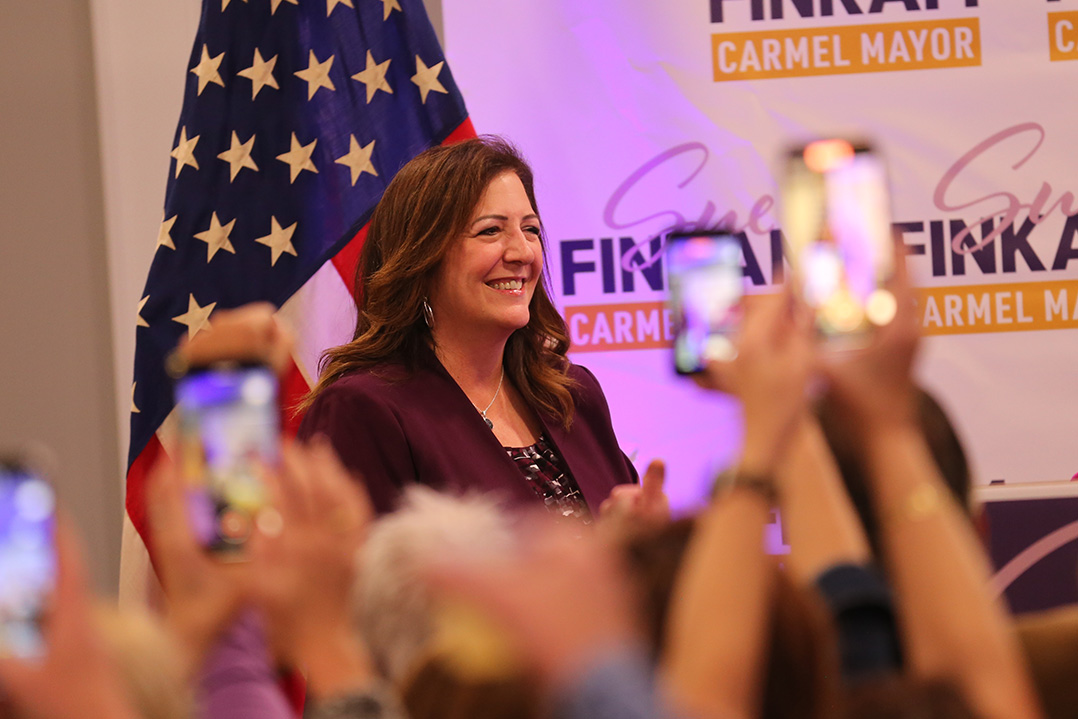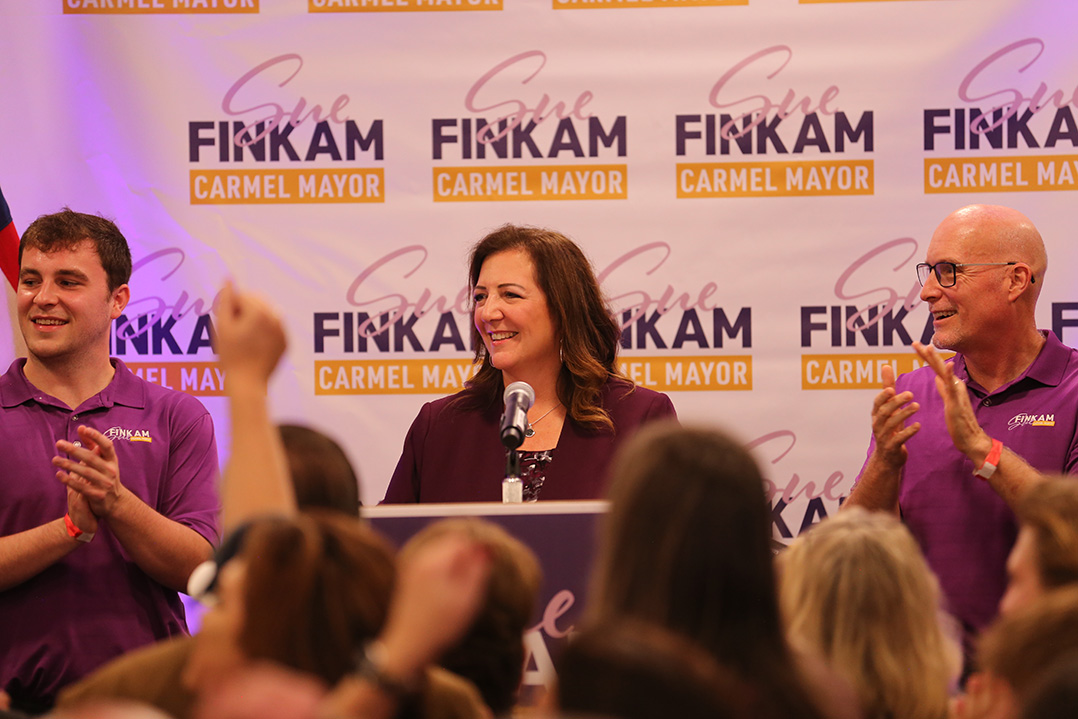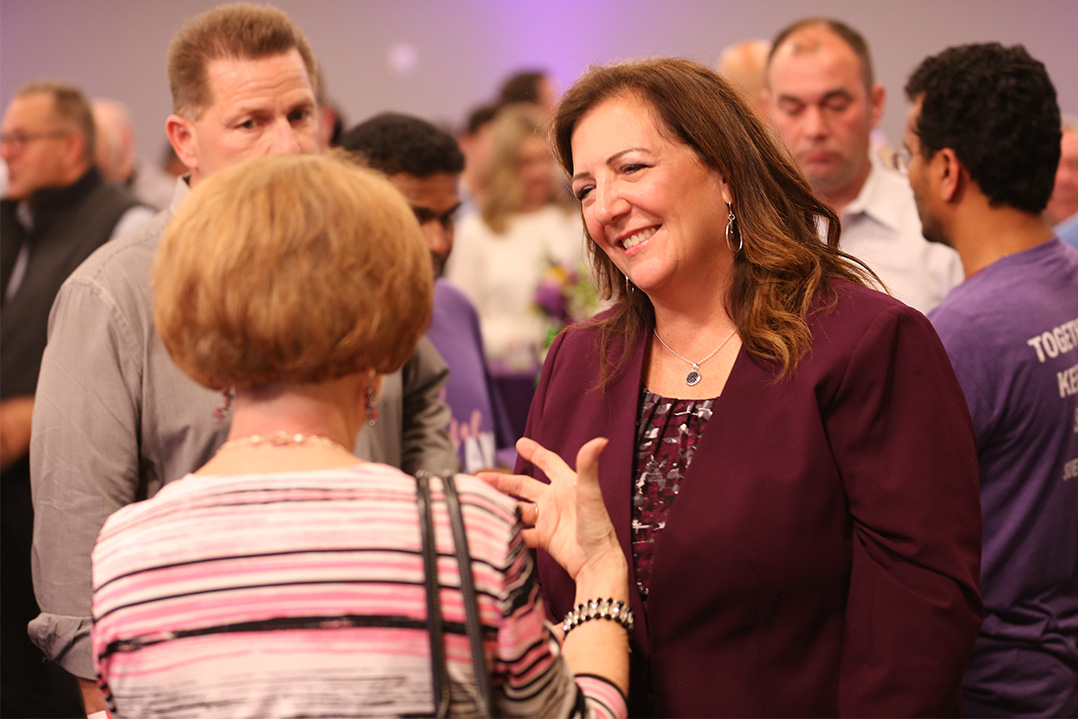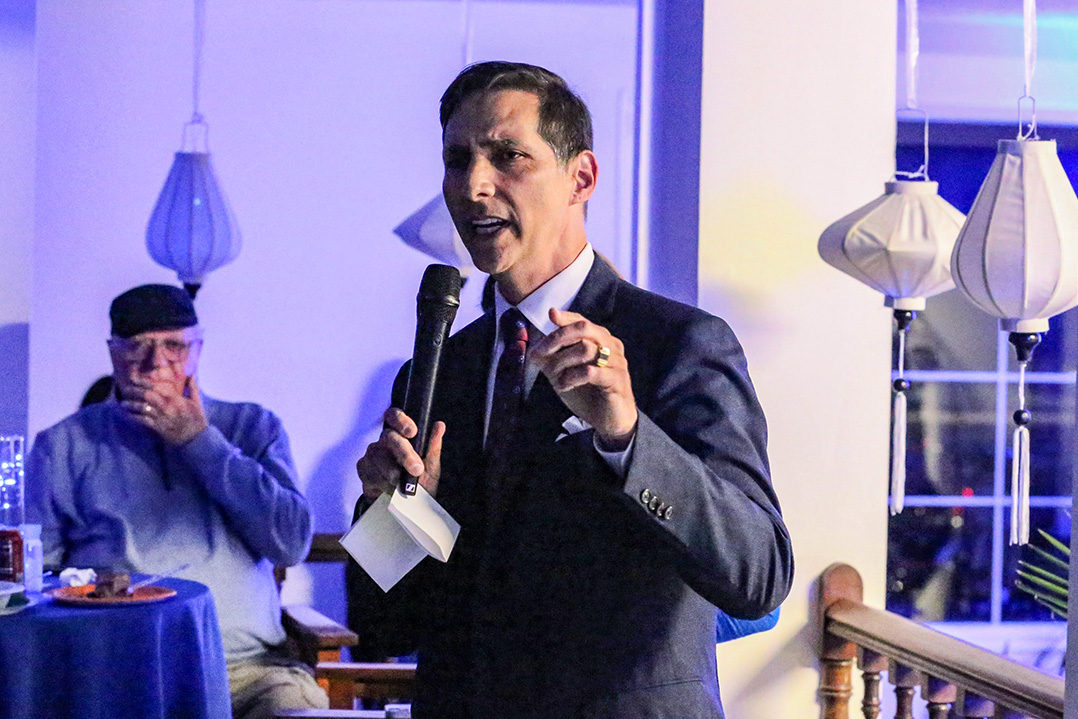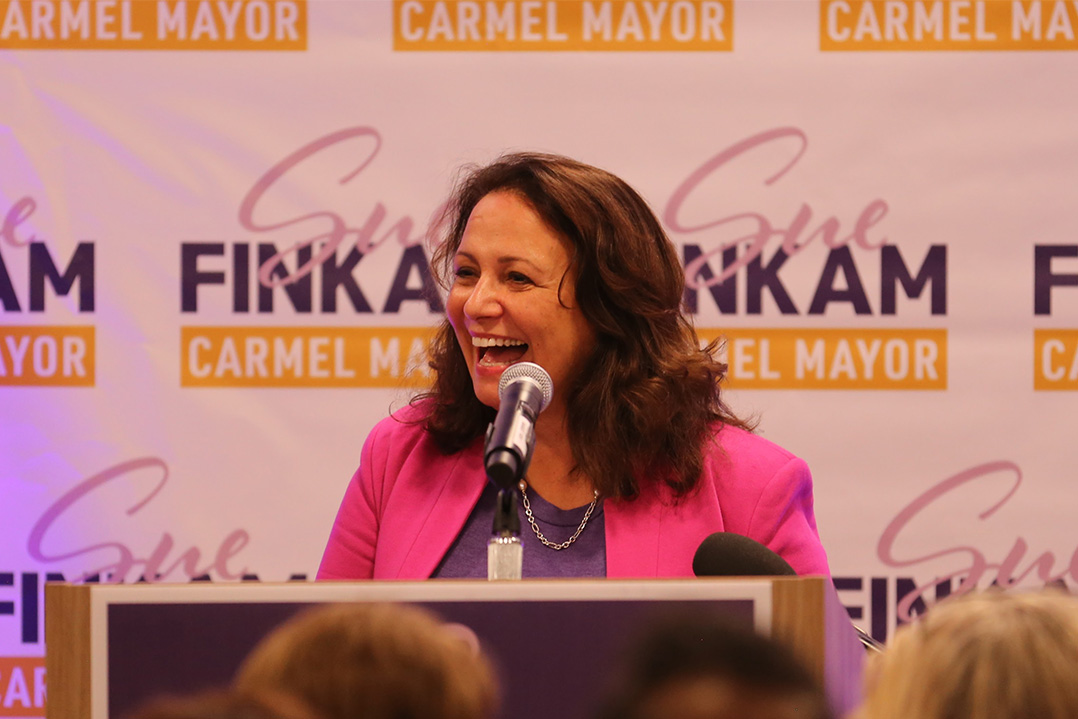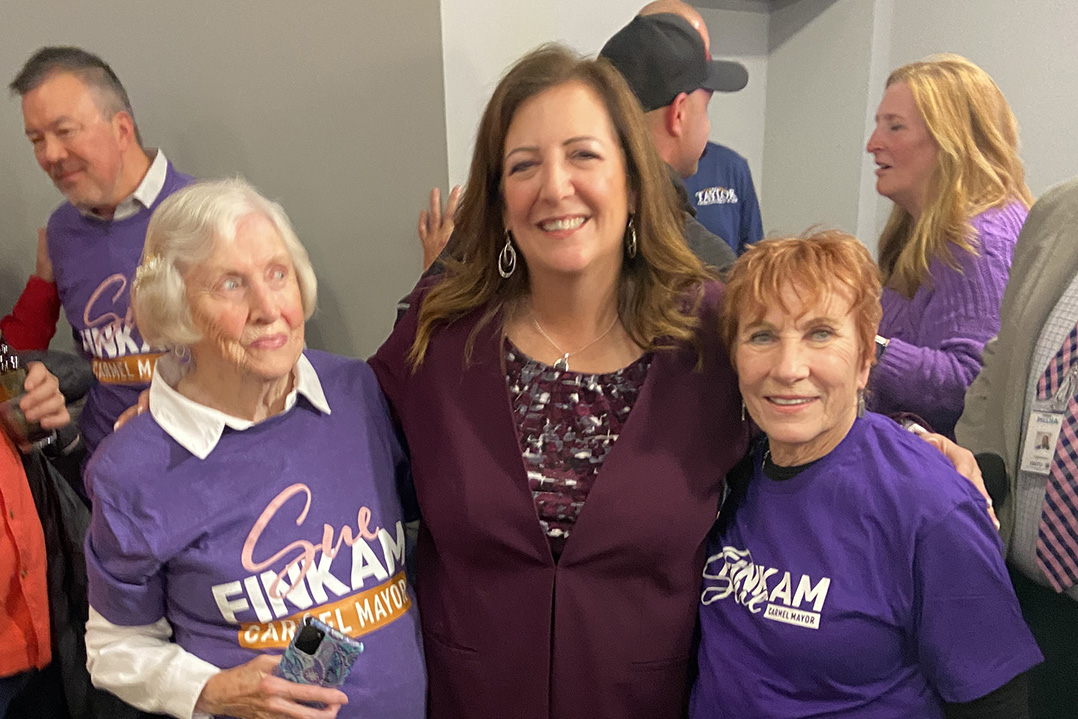Republican Sue Finkam is set to become the next mayor of Carmel.
With all precincts reporting Nov. 7, Finkam received nearly 57 percent of the vote. Democratic challenger Miles Nelson earned 42 percent.
Finkam, a Carmel city councilor representing the Northeast District, celebrated the victory with supporters and other Republican candidates during an election night party at the Carmel Fire Buffs and Fire Department Museum.
“I’m honored to be your choice to lead you into the future and will not let you down,” Finkam told the crowd. “No matter who you supported in today’s election, we must now all come together for Carmel’s future. We have great challenges ahead of us.”

During a Democratic Party election night event at the Turner Jeffrey building, Nelson announced that he had conceded the race and called Finkam to congratulate her.
Nelson became the first Democrat elected to the Carmel City Council in 2019 when he won the West District seat. He thanked his voters for their continued support.
“Because of you, we have moved the needle in this community,” Nelson told his supporters. “We showed this community that a choice is good. This community is going to continue to be a phenomenal place to live.”
Finkam will succeed Mayor Jim Brainard, who has been in office since 1996. He announced last year that he would not run for reelection. He did not respond to a request for comment as of press time.
The mayor’s race made national headlines after Nelson repeatedly called on Finkam to denounce the local chapter of Moms for Liberty, which used a quote from Adolf Hitler in its June newsletter. Finkam denounced the use of the quote but did not denounce the conservative organization, which focuses its efforts on parental rights in education, as a whole.
She said in October the incident led to personal attacks and threats throughout much of her campaign. Nelson and his team also experienced threatening behavior and personal attacks while campaigning, sometimes aimed at his Jewish faith, his campaign manager previously said.
“To say I’m happy this election is over is an understatement,” Finkam said during her victory speech. “I thought this election would be about the best way to lead the city, but it turned into something louder, nastier and negative when my opponent attacked me and painted Carmel in a negative light nationally.”
Finkam told Current Nov. 7 her campaign has always been focused on unifying the city and that she plans to continue those efforts as mayor.
“I’m going to keep working on what I campaigned on. That isn’t changing,” she said. “I’m looking forward to putting in place things that are important to people, (such as) looking at our development closely, making sure we focus on crime prevention and making sure we have our community engaged.”
Finkam will take office to begin a four-year term on Jan. 1, 2024.
City council remains Republican stronghold
Republicans retained eight of nine seats on the Carmel City Council, with the West District once again electing a Democrat. Anita Joshi, a pediatrician who had not previously run for elected office, will replace Nelson.
Incumbent Republicans Jeff Worrell (at-large), Tony Green (South Central District), Teresa Ayers (North Central District) and Adam Aasen (Southeast District) will return to the council for four more years. Joining them as newcomers on the council will be Republicans Rich Taylor and Matt Snyder (at-large), Shannon Minnaar (Northeast District) and Ryan Locke (Northwest District).
Hamilton County Republican Party Chair Mario Massillamany said the results in Carmel and Fishers – which lost all but one Democratic seat on its city council – show that voters want to see continued GOP leadership that “built two world-class cities.”
“Democrats kept saying this narrative that they were turning Hamilton County purple, or they were going to turn Carmel and Fishers blue, and that did not happen at all,” he said. “If anything, it showed that Hamilton County residents like what Republicans are doing and have done.”
Hamilton County Democratic Party Chair Dayna Colbert said the organization is celebrating Joshi’s win and flipping a seat on the Fishers City Council but will “reassess what happened” in other races as it prepares for 2024 elections.
“While (the municipal elections) didn’t turn out the way that we wanted, we take comfort in what we were able to achieve in this election,” Colbert stated. “Elected officials are putting forth increased effort to represent voters across the county. We had the highest voter turnout for a municipal election in the past 20 years. We are giving the voters of Hamilton County choices, and we will be a stronger community because of it.”
Every Republican city council candidate in Carmel faced a Democratic challenger except for Minnaar. In the previous municipal election in 2019, only four Democrats ran for city council seats and the party did not have a mayoral candidate.
CCS operating referendum extended
Carmel voters also approved an eight-year renewal of the Carmel Clay Schools operating referendum. It passed with nearly 68 percent support. In 2017, the same referendum rate passed with nearly 90 percent support.
“I want to extend my heartfelt gratitude to all the voters who came out in support of the operating referendum,” CCS Superintendent Michael Beresford stated. “Your dedication to our students and Carmel Clay Schools is truly appreciated. I have never taken for granted the impact and importance of community support for our schools. I am grateful that voters agreed to continue their investment in our schools.”
Voter approval maintains the existing operating referendum tax rate of 19 cents per $100 of assessed property value, which equates to approximately $433 annually for a home valued at $400,000.
The operating referendum produces $24 million annually for CCS, which is approximately 20 percent of the education fund primarily used to pay teachers and provide benefits. Without the referendum, CCS said they would be forced to make deep cuts to the teaching staff, significantly increase class sizes and cut a variety of programs.


